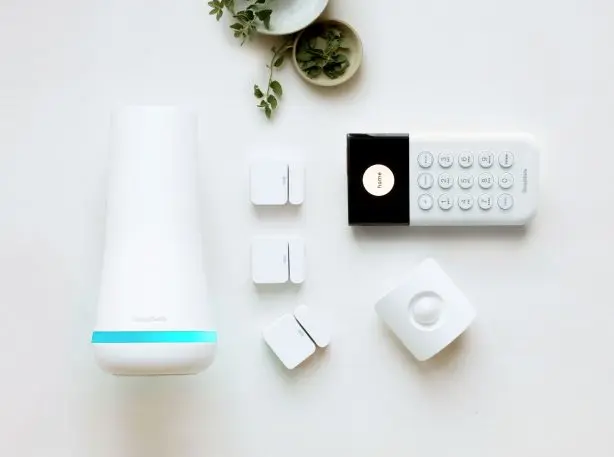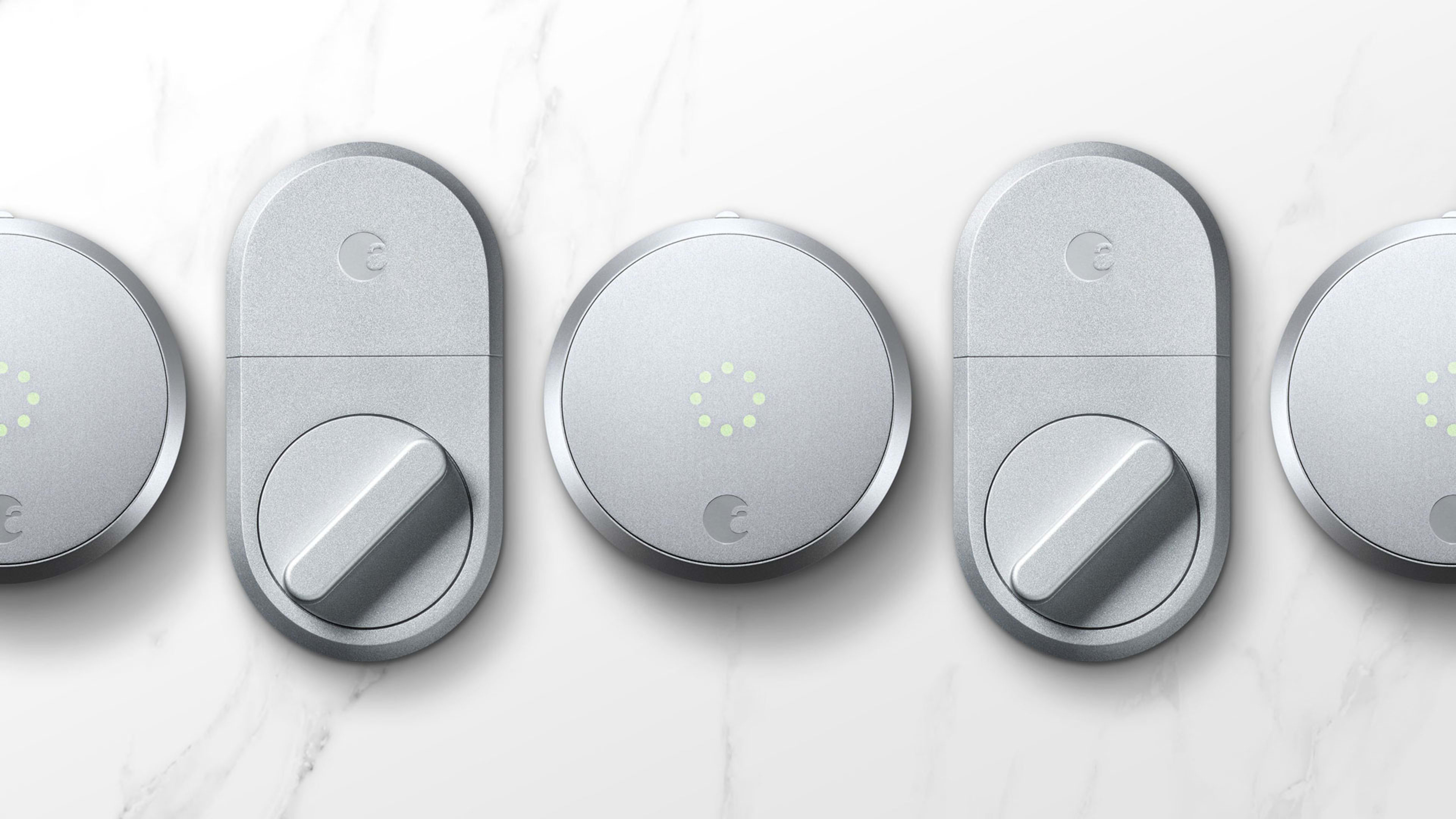In the business of smart home security, it’s tough not being Amazon or Google.
Over the last year or so, both companies have released DIY security systems–Amazon under its Ring brand, and Google under Nest–that complement their popular doorbell and security cameras. Both companies can also undercut competitors on price, and can lean on other products like the Amazon Echo or Google Home speakers for unique integrations. Amazon’s speakers, for instance, can listen for breaking glass and alert Ring’s home monitoring system, while Google lets users arm view camera feeds through its smart displays. Amazon’s recent acquisition of mesh router maker Eero is a reminder of how hard it is for smaller companies to build a competing ecosystem.
In the face of such intimidating competition, I was curious how companies like August, SimpliSafe, Wyze, and Netatmo planned to survive with their own connected cameras and security systems. Here’s how they plan to outsmart the tech giants:
Nail the details
For SimpliSafe CEO Chad Laurans, taking on the behemoths is a matter of focus. SimpliSafe sells a set of sensors, security cameras, and a keypad, then charges $15 per month for its monitoring service. The company now has more than 3 million paid subscribers, up from 2 million in early 2018.
“What we do is we wake up every day thinking about security, and how we change those outcomes, and how we create a better value proposition in security,” Laurans says. “I strongly suspect those folks don’t wake up every day thinking about that. They wake up thinking about how they monetize data.”
The notion of a small, focused company taking on larger, lumbering competitors can seem cliché, but Laurans points to examples of where SimpliSafe’s singular mission is advantageous. Nest, for instance, outsources its customer support and home monitoring, which means the team might be missing valuable feedback from customers. He also criticizes the design of Nest’s Alarm device, which is meant to sit on a table, as a “critical security flaw.”

Laurans applies a similar criticism to Ring, noting that SimpliSafe’s contact and motion sensors have a longer range and have batteries that last up to 10 years, versus three years for Ring.
“It’s good enough to check the box of having a security system, but it’s not delivering outcomes that we can deliver by focusing on making every single sensor as effective as it can be,” he says.
Besides, SimpliSafe has withstood larger competitors before. Laurans notes that before Amazon and Google became interested in home security, SimpliSafe had to compete with phone carriers, retailers, and well-funded DIY startups, some of which have since failed or languished. Verizon, for instance, ended its smart home service in 2014, two years after launching it, Lowe’s shut down its Iris platform last month, and Wink seems to be on life support.
“We don’t feel terribly afraid of them,” Laurans says of Amazon and Google. “I feel a little bit afraid for their customers sometimes. I do wonder what happens if and when [Amazon and Google] lose interest.”
Privacy first
Almost every company I spoke to argued that they offer more privacy than the tech giants, but the most compelling case along this line came from Netatmo, a French company that started out making weather sensors but has since expanded into security and doorbell cameras.
Unlike Amazon, Google, and many others, Netatmo doesn’t upload any video to its own servers. Instead, it records to a MicroSD card. Users can view the video by connecting to their home network. Those who want cloud backups can optionally link their cameras to Dropbox, but there’s no subscription component to Netatmo’s business.

Although Netatmo doesn’t really push the privacy angle in its marketing, Thibaud says people come to appreciate it once they set up the device. The face recognition in Netatmo’s in-home security camera is processed on the device itself instead of in the cloud, and Netatmo’s outdoor camera and forthcoming doorbell camera don’t do face recognition. Netatmo doesn’t even ask for users’ names when they sign up for an account; just an email address will suffice.
“People buy the product for the lack of subscription,” Thibaud says. “It’s after they install the product that they realize that the product is secure, and they realize that other products aren’t.”
Do what tech giants (probably) won’t
On its own, August Home might’ve struggled to take on tech giants while expanding from smart locks to doorbell cameras. But in late 2017, the company was acquired by a giant in its own field, Swedish lock conglomerate Assa Abloy. Together, they plan to focus on access control, with their smart locks and security cameras working together in one integrated solution.
“We’re not aiming to be a broad smart home play, with light controls, and thermostats, and making the entire home smart,” says Martin Huddart, the head of Assa Abloy’s smart home division. “We’re a security company first and foremost.”
https://www.youtube.com/watch?v=e2L0LDZIMEc
Huddart and Jason Johnson, August’s co-founder and CEO, both feel confident that Google and Amazon won’t be making smart locks anytime soon, if ever. That may explain why Amazon turned to Assa Abloy’s Yale brand for its Amazon Key in-home delivery service, and why Nest worked with Yale on the lock component of its home security kit.
“Locks are a surprisingly difficult thing to do well,” Huddart says. “If the mechanical part of the lock is no good, you open up a vulnerability to your home. I think experience does count a lot in a category like locks.”
Given the scale at which Assa Abloy operates, it can continue to focus mainly on selling hardware, with August bringing in software expertise as the lock giant adds more connected options. Still, Huddart says Assa Abloy is using its newfound smarts to try some new things. Last year, for instance, the company began piloting a grocery delivery program with upscale UK chain Waitrose, and Huddart says you could imagine that access program expanding to other areas like home repairs, dog walking, and furniture delivery.
“Our products control millions and millions of homes around the world,” he says, “so being a broker of that access control, as a neutral party, makes a lot of sense to us.”
Go even cheaper
While most smart home security companies risk being undercut by tech giants offering similar gear at lower prices, Wyze has proven an exception by selling capable cameras for as little as $20. Despite the low prices, Wyze’s cameras take clear 1080p video, and the software has lots of helpful features such as motion detection zones, two-way audio, and integration with Amazon Alexa and IFTTT.
Wyze has sold 1.5 million of those cameras in the last 18 months, and is now expanding into broader security applications with a $20 set of contacts and motion sensors. Smart light bulbs that can be activated by Wyze’s cameras and sensors are on the way.
For Wyze, the low prices are somewhat of a gambit. While it turns a small profit on the hardware, and the company says it has virtually no marketing budget, Wyze still has to pay its employees and spend money on product development. To that end, it recently raised $20 million from Norwest Venture Partners, but the startup is still figuring out what its business model will ultimately be.
“We’re still very much in growth mode,” says Elana Fishman, Wyze’s cofounder and COO. “We’re a startup, we’re only a year-and-a-half old, so we’re certainly investing in growing the business and developing new products.”
Despite the business model uncertainty, Fishman says the goal isn’t just to reward its investors, but to build out a smart home ecosystem that can take on the tech giants. While the company is selling cheap hardware, it’s also trying to build a relationship with customers that can grow over time. (One example: Wyze’s product roadmap is publicly viewable, and customers can vote or comment on what features they want to see next.)
“We’re very much investing in our own ecosystem of products, and are confident in ourselves that we will be one of the major players in smart home,” she says. “It’s not just an acquisition play by one of the major players.”
Recognize your brand’s excellence by applying to this year’s Brands That Matter Awards before the early-rate deadline, May 3.
